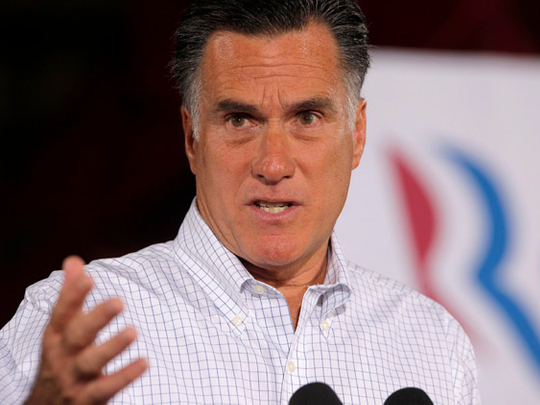
It’s rather surprising that it was mystery-guest actor Clint Eastwood — not Mitt Romney — who made the only reference to the war in Afghanistan during the final night of the GOP (Grand Old Party) convention last week. Commentators on both the right and the left have taken the Republican presidential nominee to task for not addressing a nearly 11-year-old conflict in which roughly 90,000 US troops are currently engaged and more than 2,000 have died. In fact, the so-called “forgotten war” was only mentioned four times during the three-day Republican convention (the word “jobs,” by contrast, was uttered 220 times).
The Associated Press reports that Romney is the first Republican since 1952 to accept the party nomination without discussing war. The omission is particularly notable considering that quite recently, in New Hampshire, Romney criticised President Barack Obama, who has not delivered a major address on the war since May, for not speaking more about Afghanistan. “When our men and women are in harm’s way, I expect the president of the US to address the nation on a regular basis and explain what’s happening and why they’re there and what the mission is, what its progress is, how we’ll know when it’s completed,” he explained. Romney himself, however, has not mentioned Afghanistan much this election season.
According to an archive of 46 formal campaign speeches that Romney has delivered in 2011 and 2012, which the University of California, Santa Barbara’s American Presidency Project compiles based on transcripts released to the press by the campaign, Romney has mentioned the word “Afghanistan” 10 times on the campaign trail. Obama, by contrast, has used the word 36 times — more than three times as often as Romney — in 41 speeches (over a shorter time frame), according to the same American Presidency Project archive. There are caveats to these figures, of course: The Santa Barbara database does not include every remark the two candidates have made on the campaign trail, and Obama almost always references Afghanistan in the same way — a line or two about the administration’s commitment to winding down the war, bringing the troops home and investing the savings domestically. Obama is also the commander-in-chief, while Romney is a candidate. Still, directionally, the numbers suggest that Democrats are currently more comfortable talking about the war than the Republicans are.
The war in Afghanistan is a politically fraught issue for Romney.
In calling the conflict a “war of necessity” rather than a “war of choice” (as in Iraq), Obama has taken ownership of the protracted military engagement he inherited. And his plan to end the combat mission by 2014 is popular. In May, for example, support for the Afghan war hit a new low, with a mere 27 per cent of respondents in an Associated Press-Gfk poll backing the military effort. Only 37 per cent of Republican respondents said they supported the war, down from 58 per cent in 2011. If Romney softens his stance on the war — as he briefly did last year when he declared that “it’s time for us to bring our troops home as soon as we possibly can, as soon as our generals think it’s OK” — he may anger hawks within the GOP. And if he assumes too aggressive of a posture, he may alienate a war-weary public.
When Romney has discussed Afghanistan, he has not offered many specifics. His most consistent argument is that he would shape his withdrawal strategy based on military advice rather than politics or economics. And yet, it may be politics that is keeping Romney from staking out a clearer position on Afghanistan.
Uri Friedman is an associate editor at Foreign Policy









